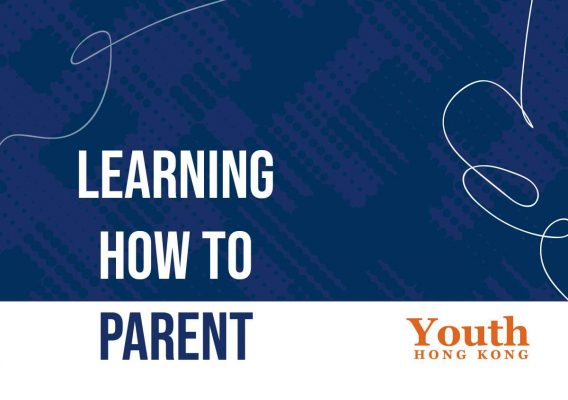//vol.15-4 Viewpoint: Parenting
Learning How to Parent
by Lakshmi Jacota
It is not easy to be a parent. It seems to be a constant battle of stress and expectation.
With a newborn, we feel pressure “not to make mistakes” and to keep the infant safe, secure and protected from dangers real and imagined. With a toddler, anxieties double as we begin to help the child pilot his or her own mobility and growing consciousness of the world around them. A child in primary school brings other burdens, including comparisons: is mine smart enough, talented enough, occupied enough? Secondary school sees the conflict of opinions, the stroppiness, the stubbornness, the weight of success and the anxieties of future plans. At university, these feelings of stress get either multiplied or diminished as we continue to guide their choices, whether or not they adhere to them. Because, as parents, we continue to believe that we know best.
But what if we don’t? What if those things that we hold to be true, and our well-intentioned advice about, for example, higher education and good marks being the only pathways for success, are actually untrue? What if, by our own standards, we tell them that happiness is not a goal, just an aspiration? That interests and passion do not necessarily equate to stability and regular income? That job satisfaction comes later, rather than earlier?
What if with the regular pressure of external forces that they face, all we are doing is exacerbating their burdens, consciously or otherwise, which might result in our children struggling with mental health issues? What if we’re unaware of this happening? And worse, what if we find out when it is too late?
Hong Kong has long talked about these issues, but now the conversation is more urgent. According to The University of Hong Kong’s Hong Kong Jockey Club Centre for Suicide Research and Prevention, there have been 22 reported suicide attempts and death cases involving individuals under the age of 18 or tertiary students from August to October, 2023. This is compared to a total of 11 such cases reported in the same period in 2022.
Further worrying data from the Centre, alongside five NGOs, including the Federation, which operate an online youth support platform Open Up, showed that 19,690 young people had called for help between August and October, 418 of whom had suicidal thoughts and were considered high-risk.
“If students see their parents as a source of stress, their support network is weakened.”
Could anything be starker?
In sharing these alarming findings, Professor Paul Yip, founding director of the Centre, explained that one reason could be that students were finding it hard to cope after school closures and the social restrictions wrought by the Covid-19 pandemic.
This was compounded, according to Professor Yip, by some teachers leaving Hong Kong and others under immense pressure to focus on school work.
Charlie Chan from Caritas Hong Kong, one of the NGOs involved, spoke about students feeling “very anxious about exams and (struggling) to adapt to the competitive environment at schools that often left them in distress.”
What he said next should give all parents pause. He continued, “Such feelings were often not understood by parents, who might think they were just lazy or escaping from schoolwork.” Maybe we as parents, not recognising or acknowledging our own stress, really do not know what is best for our children.
“We need to be more intentional, more observant and more inquisitive, being less “I know best,” with all the answers, trying to micromanage their lives our way.”
So what should we do? Apart from the normal checking in on them, providing them with home comforts and generalised support, perhaps we need to be more intentional, more observant and more inquisitive, being less “I know best,” with all the answers, trying to micromanage their lives our way. Or as Chan put it, parents should not promote a “culture of competition” at home, instead, they should offer their children more care.
In an Opinion piece, members of the Centre wrote eloquently, “Instead of pushing their children onto a predetermined track and emphasising getting a head start, we (parents) should encourage our kids to explore their own path at their own pace.” They continued, “Parents should support their children in cultivating their talents and an interest in learning, aiming for holistic growth rather than just focusing on academic results. Family support is a crucial protective factor for mental health, regardless of age. If students see their parents as a source of stress, their support network is weakened.”
As our children evolve and learn to navigate and negotiate their worlds growing up, especially during their transitional and changing life stages, we as parents need to evolve too. Hsu Siu Man, the Executive Director of the Federation says, “Sometimes the best role parents can play is to listen; listen carefully, without judgement or conditionalities or prescriptions on what to do next.”
Maybe that is the lesson we need to learn, hopefully, making us better and less stressed parents, so that our children are released from at least one pressure that they would otherwise have to face.
Parenting is hard, but surely it is our duty not to make our children’s lives harder. ■
References
1 Emily Hung and William Yu, 「Hong Kong records 22 teenage suicide attempts or deaths in 3 months, double the number in the same period in 2022」, South China Morning Post, 7 November 2023
2 Anson Yip, Joyce Liu and Paul Yip, “In brewing mental health crisis, Hong Kong must help its youth speak up about their troubles,” South China Morning Post, 22 October 2023.


